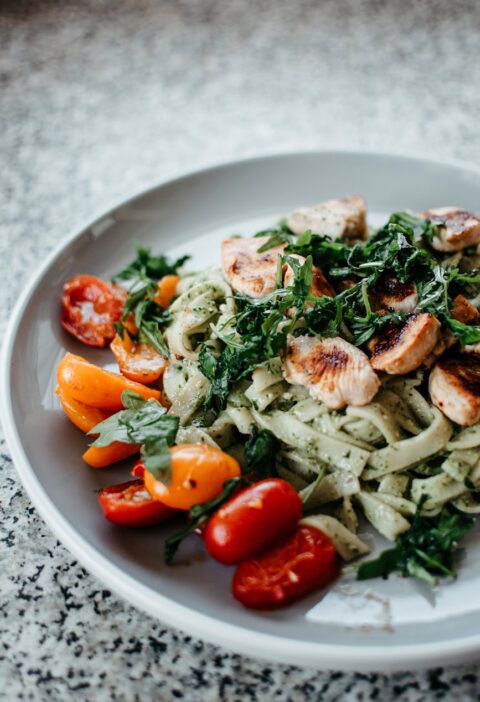Weight Loss with the Mediterranean Diet: A Step-by-Step Guide
Achieving sustainable weight loss can feel like an uphill battle, but adopting a healthy and enjoyable eating plan can make all the difference. The Mediterranean diet, renowned for its emphasis on whole, unprocessed foods and its association with numerous health benefits, offers a delicious and effective pathway to weight management. This guide provides a step-by-step approach to incorporating the Mediterranean diet into your lifestyle, focusing on practical strategies for successful weight loss. We’ll explore the foundational principles of this dietary pattern, delve into practical meal planning and recipe ideas, and address common challenges and misconceptions to ensure your journey is both rewarding and sustainable. We’ll also cover the importance of incorporating physical activity and mindful eating for optimal results. Prepare to embark on a transformative journey to a healthier, happier you.
Understanding the Core Principles
The Mediterranean diet isn’t just about restricting calories; it’s a lifestyle shift that prioritizes whole, unprocessed foods. Its foundation lies in abundant fruits and vegetables, whole grains like quinoa and brown rice, legumes such as lentils and chickpeas, and healthy fats from sources like olive oil, nuts, and seeds. Lean protein, primarily from fish and poultry, plays a significant role, while red meat is consumed sparingly. This balance of nutrients promotes satiety, helps regulate blood sugar levels, and supports overall metabolic health, creating an environment conducive to weight loss. Dairy products, primarily yogurt and cheese, are also included in moderation.
Meal Planning and Recipe Ideas
Successful weight loss relies on consistent and mindful eating. Planning your meals ahead of time prevents impulsive unhealthy choices. Start by incorporating a variety of colorful fruits and vegetables into each meal. For breakfast, consider Greek yogurt with berries and nuts, or a whole-wheat toast with avocado. Lunch could be a hearty salad with grilled chicken or fish, and dinner might feature baked salmon with roasted vegetables and quinoa. Don’t be afraid to experiment! The Mediterranean diet is incredibly versatile; countless recipes cater to various tastes and preferences. Explore online resources and cookbooks dedicated to Mediterranean cuisine for inspiration. Remember, portion control remains crucial even with healthy foods.
Incorporating Physical Activity and Mindful Eating
While diet is crucial for weight loss, regular physical activity is indispensable. Aim for at least 150 minutes of moderate-intensity exercise per week, incorporating activities you enjoy, whether it’s brisk walking, swimming, cycling, or dancing. Combine this with mindful eating practices. Pay attention to your body’s hunger and fullness cues, eat slowly, and savor each bite. This mindful approach enhances your connection with food and helps prevent overeating.
Addressing Challenges and Misconceptions
Transitioning to the Mediterranean diet may present challenges. One common misconception is that it’s overly restrictive. While it encourages healthy choices, it’s adaptable to individual preferences and dietary needs. Another challenge is social eating; navigating social situations that involve less healthy foods requires planning and mindful decision-making. Remember, occasional indulgences won’t derail your progress as long as you maintain a predominantly healthy eating pattern. Consider involving family and friends in your journey for support and encouragement.
| Nutrient | Source | Weight Loss Benefit |
|---|---|---|
| Fiber | Fruits, vegetables, whole grains, legumes | Promotes satiety, regulates blood sugar |
| Healthy Fats | Olive oil, nuts, seeds | Provides sustained energy, supports hormone regulation |
| Lean Protein | Fish, poultry, legumes | Preserves muscle mass, boosts metabolism |
Conclusion
The Mediterranean diet offers a holistic and sustainable approach to weight loss. By focusing on whole, unprocessed foods, incorporating regular physical activity, and practicing mindful eating, you can achieve lasting results. This guide has outlined the core principles, provided practical meal planning strategies, and addressed potential challenges. Remember, consistency and patience are key. The Mediterranean diet isn’t a quick fix; it’s a lifestyle change that fosters long-term health and well-being. Embrace the journey, savor the flavors, and celebrate your progress along the way. Don’t be afraid to seek professional guidance from a registered dietitian or healthcare provider to personalize your plan and ensure it aligns with your individual needs and health conditions. A healthy lifestyle is an investment in your future, and the Mediterranean diet provides a delicious and effective path toward achieving your weight loss goals and a healthier you.
Image by: Dang Hong
https://www.pexels.com/@dwanghong






